The Women of Leadville Words by Dan Hughes Maybe it’s the rarified air…
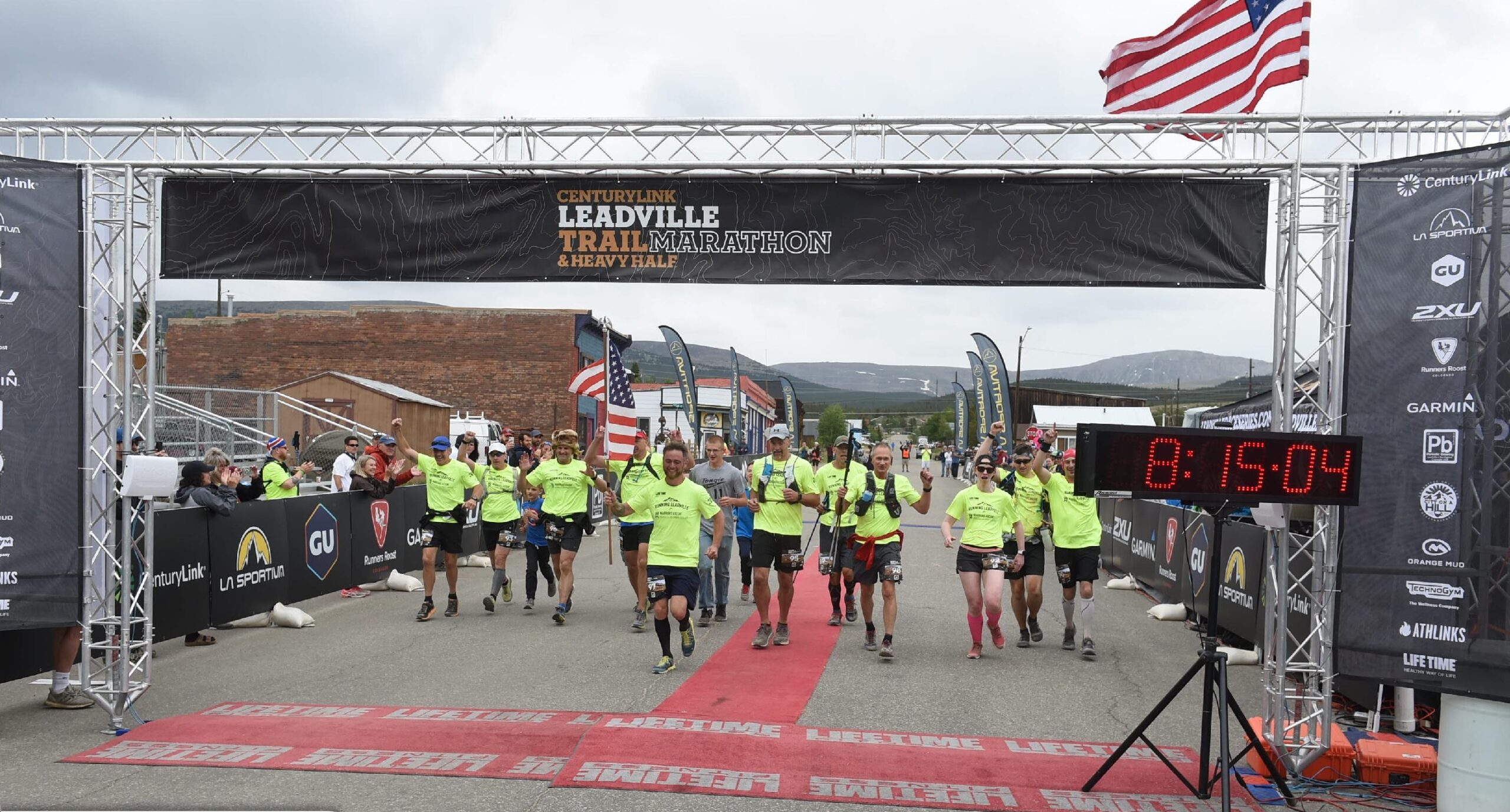
A Healing Path
U.S. Army Captain Dan Keyser on running to save others — and himself.
Written by Jill Patton
Dan Keyser has run the Leadville Trail Marathon every year since 2015. He runs to support veterans facing post-traumatic stress, and he runs to heal himself. The U.S. Army captain served two tours in Afghanistan; during his second deployment, two men in his command were killed in an attack, and Keyser struggled for years with post-traumatic stress.
A chance dinner with Tony Hofmann, a dynamic and persuasive retired Army colonel looking to build a team of athletes to run this challenging high-altitude race, inspired Keyser to turn his focus toward helping others who have suffered as he has. Hofmann’s “Team Leadville” will run its fifth race together this year, raising money and awareness for an organization called Warriors’ Ascent (www.warriorsascent.org), which provides a free holistic healing program for veterans and first responders facing post-traumatic stress.
Life Time | Tony Hoffman must have done an incredible recruitment job to get you to run your first marathon in the Rocky Mountains. Have you always been a runner?
Dan Keyser | My dad was in the Army as well, so I moved around a lot growing up. I learned to play soccer when we were living in Germany and fell in love 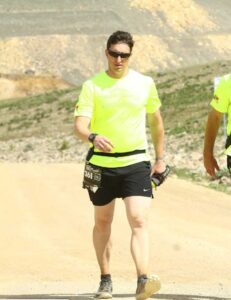 with the sport. We moved to Virginia when I was a little older, and I continued to play soccer but quickly realized that I couldn’t run and play as long as everybody else could. I didn’t have the stamina.
with the sport. We moved to Virginia when I was a little older, and I continued to play soccer but quickly realized that I couldn’t run and play as long as everybody else could. I didn’t have the stamina.
My dad and my godfather, who was also in the Army, would go for these five- and six-mile runs together to stay in shape. So one day, I asked if I could try to keep up with them. I did a mile and a half that first day. They gave me tips about how to run better, how to breathe better, how my stride should be. It evolved, and I soon found that my ability to stay on the soccer field increased.
LT | How has running supported you in your military career?
DK | Following high school, I was accepted to West Point. I tried out for the soccer team, but got cut in the last round, which turned out to be a good thing. It allowed me to get into orienteering, which is essentially doing land navigation on a designed course, where you have to run as fast as you can with the map and a compass. I needed a way to stay in shape, and running through the woods was perfect.
In 2010, not long after graduation, I was sent on my first deployment to Afghanistan, where I spent five months. I didn’t run much on that first tour. I guess I was worried about how to go for a run in a country where people didn’t necessarily like me. I really didn’t need to worry — I was on an installation that was pretty secure. But I lost some of my physical fitness from a cardio and endurance perspective. When I got home, I started running again. Every morning, I’d run four or five miles and then lift weights or do some kind of other physical activity.
I went on my second deployment in 2012. It was a stressful, difficult deployment for a lot of reasons, but the worst of it was in August of that year. Our two platoons were out doing a patrol, and they got hit with an IED. Nobody was injured in the explosion, but it severed a hydraulic line in one of the trucks. Our guys got out to see what was going on and were getting ready to hook it up to our recovery vehicle when an Afghan army patrol pulled up behind them to assist us. One of their guys turned his machine gun on two of my guys and killed them.
I wasn’t on that patrol. I was monitoring the patrol at our headquarters and had stepped out to drop my laundry off when one of my soldiers came running up saying, “Sir, you’re needed back in the TOC,” which was our tactical operations center. We ran to the TOC and my commander was just sitting there with this look on his face. I asked what was going on and he said, “Dan, I don’t know.”
About an hour later, we finally got a report. Two U.S. soldiers killed in action, Chris Birdwell and Mabry Anders. We had some close calls before. We had some guys get rocked. But not this.
A few days later, I realized I hadn’t run or worked out since the day we lost Chris and Mabry. I thought then, I just need to go for a run. I got on the treadmill and ran for an hour straight — just got my brain off everything as best I could and ran.
LT | How did the experience of losing two of your soldiers affect you once you got home?
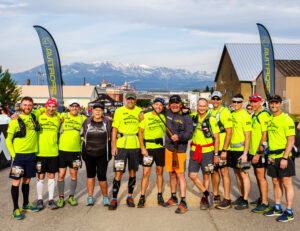
DK | I was all kinds of messed up from that deployment. I knew there was something going on with me because I couldn’t sleep at night. I was hypervigilant. My fiancé, now my wife, said, “You probably need to go see somebody,” which I fought for as long as I could, thinking, I don’t need to do that. Only weak guys go seek help and get their head shrunk.
One night, I got loaded on a case of beer and called my operations sergeant from that deployment. I bawled my eyes out on the phone to him, saying things like “That should have been me,” and “If that had been me being put in a body bag, then everything would be OK.” He said the same thing my fiancé did: “You probably need to go see somebody.”
LT | Was therapy helpful?
DK | It took me a long time to piece together what was going on in my head. I started sitting down with one of the unit’s social workers, but only about once a month because there were so many of us who needed help. So all these feelings of guilt, these feelings of remorse for not bringing my boys home, they just continued to fester. Those feelings and thoughts, I call them my demons. You feel like you’re worthless, you’re broken. You don’t deserve to be alive. You don’t deserve to be happy. All the suicidal crap that creeps in. My demons started getting a bigger and bigger hold on me, and the only way I could think to quiet them was to drink the pain away.
I transferred to Fort Rucker in Alabama and saw a psychiatrist who put me through different batteries of tests and therapies to try and help me process what I had in my head. I didn’t really feel like those helped a whole lot. When my wife and I (we got married in 2013) were stationed at Joint Base Lewis-McChord in Washington state in 2014, my wife encouraged me to try more therapy. I was reluctant to go to my third therapist in two years, but the doctor I saw there was phenomenal. We did a lot of cognitive behavior therapy, and I could see her once a week. I worked with her until I left in that base in 2017.
LT | You met Tony Hoffman in 2014, right?
DK | We were doing an exercise in Fort Leavenworth, Kansas. One of my bosses was one of Tony’s former deputies, and she suggested we go meet him and his wife for barbeque in Kansas City. That’s when Tony hatched his idea about running the Leadville Marathon. He had run the 100-miler, and the Boston marathon five or six times. Just looking at him, you can tell he’s a runner through and through — with a dash of crazy, I think, too!
LT | How did you decide to raise money for veteran suicide prevention?
DK | You know, the actor Robin Williams’s suicide in 2014 hit me pretty hard. I loved watching his movies. I loved his humor, and he just always seemed happy. Here’s a guy who, when you look at him, he’s happy, he’s jovial, he’s cracking jokes. That’s not a guy who you picture taking his life.
I mentioned this to my doctor and she said, “You realize that’s kind of what you do? You come here and we talk, but at work you don’t seem to have any problems. You do your job. You can converse with your friends. You can talk to your bosses and present projects and solutions, but then you come in here and you talk about all the stuff you have going on in your head.”
Meanwhile, my wife and I had been connected with an organization called the Iraq and Afghanistan Veterans of America or IAVA. They were trying to get a bill 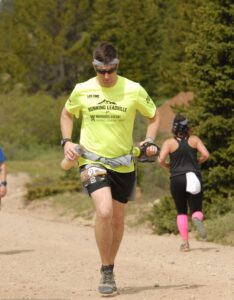 passed to make access to mental health care for veterans more accessible. This initiative, combined with that conversation with my doctor, and also Robin Williams’s death, made me think that I could do something to help with this.
passed to make access to mental health care for veterans more accessible. This initiative, combined with that conversation with my doctor, and also Robin Williams’s death, made me think that I could do something to help with this.
In our first year, we raised money for IAVA. IAVA does amazing work to advocate for veterans on a number of fronts. But since the primary mission of our team is to prevent veteran suicide, we decided we wanted to support an organization whose sole focus is that as well. The second year, Tony told us about a Kansas-based group called Warriors’ Ascent whose mission is to heal trauma and prevent suicide in veterans and first responders, and that’s the group we’ve supported ever since.
LT | Have you participated in Warriors’ Ascent’s Academy of Healing program?
DK | Not yet. Part of that is because by the time I learned about them, I had already found a treatment that was working for me. But I really like that they take a holistic approach to the person. They look at the spiritual, the physical, and the mental aspects of veterans’ and first responders’ lives to help them overcome post-traumatic stress and to prevent suicide.
I know that Warriors’ Ascent uses yoga as part of their protocol. I’m trying to work on my own yoga practice because it’s so powerful for mental health, for body awareness and for body control. You get into an uncomfortable position and you just learn to breathe through it, to process it. It reduces that fight or flight mentality. The mindfulness, meditation, breathing exercises and yoga — these are all things I’m trying to do on a daily basis in addition to my physical training in order to heal and work through trama. So I can be the person I was intended to be: the husband, the son, the brother, the friend that I need to be for those who mean the most to me.
LT | Do you feel like you’re healed from your trauma?
DK | I don’t think you ever get completely healed. I have far more good days than bad, but there’s still a day sprinkled here or there that I get a dose of reality 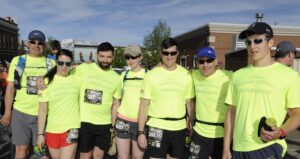 like, Oh, man, I’ve been through some stuff. There’s a lot of work that still needs to be done.
like, Oh, man, I’ve been through some stuff. There’s a lot of work that still needs to be done.
LT | Is that why you keep running the Leadville Trail Marathon?
DK | The mission is not over. It’s not going to be over for a while, so I don’t want to stop running this marathon, being a part of this team and being a part of this fight, because there’s still so much work to be done. I don’t like the idea of quitting and saying, “I’ve got other things I’ve got to handle.” That’s part of it, I guess. The other part is it’s really hard to say no to Tony!
Want to help with their cause? You can now donate to Warriors’ Ascent during checkout on our online store!
